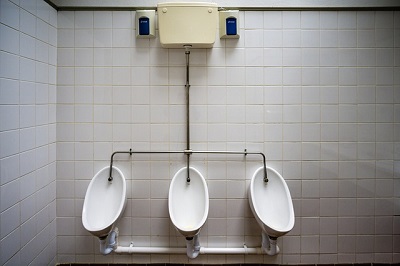Three Urinary Manifestations Are Detectable For Prostatitis
Date:2024-07-12 click:0
The most important part of prostate gland function is the secretion of prostatic fluid. However, with the acceleration of life rhythm and the increase of male work pressure, as well as environmental problems caused by automobile exhaust, male physical health is increasingly declining, resulting in the increasing prevalence of male prostatitis.

Prostatitis is a common but painful condition that affects many men worldwide. The average urination duration of the male should be completed within 1 minute. However, most people think it is okay if you urinate longer than the average.
Urination is so important to prostate health that experts recommend that men over the age of 40 determine if they have a prostate problem by counting how long it takes them to urinate, such as whether they can empty their bladder in less than a minute. Of course, there are some objective reasons why you might not be able to empty your bladder within 1 minute, such as drinking a lot of water.
There are many signs of prostatitis, such as continuity of urination, difficulty urinating, and so on. Males can refer to the following circumstances to judge their body health:
1. Urinary incontinence
Either during the day or at night, if you're in a hurry to get to the bathroom for urination, it may result in urinary incontinence. When accompanied by colic in the lower abdomen or searing pain in the urethra when urinating, prostate problems should be considered. Prostatitis and urinary problems in men tend to be progressive, with symptoms such as frequent, urgent, and painful urination. If left untreated, these symptoms can significantly impact daily life and overall well-being.
2. Foamy urine
Observing the state of the urine can help you understand your urogenital health. If you notice foamy urine that can persist for a long time, it may be a sign that you have prostatitis. Because patients with prostatitis may carry prostatic fluid in the urine, there will be oil beads on the surface of the urine, showing a foamy urine state with many bubbles.
If these bubbles are large or of different sizes, and the duration is short, they can be seen as the typical bubbles in the fluid. However, persistent foamy urine should not be ignored and warrants further medical evaluation to rule out other potential causes such as kidney issues or infections.
3. Difficulty urinating
Severe cases of prostate disease may result in obstructive urination problems such as urination hesitation, arduous urination, thin urine lines, and so on. Sometimes, when you catch a cold, drink too much alcohol, excessively hold urine, or take certain drugs, plus other inducing factors, it will make it hard to discharge the urine.
When the urine in the bladder has accumulated more and more, it is called acute urinary retention. This condition can be extremely uncomfortable and may require immediate medical attention to prevent further complications.
Early detection of prostatitis symptoms can lead to more effective treatment and a better prognosis. Men experiencing any of the above symptoms should seek medical advice promptly. Ignoring these signs can lead to chronic prostatitis, which can be more difficult to treat and may lead to further health complications.
Treatment is also very important when suffering from prostatitis. For this problem, the herbal medicine Diuretic and Anti-inflammatory Pill can become the patient's choice. It can effectively improve the symptoms, reduce pain, eliminate inflammation, and have a great positive effect on men's health. Additionally, lifestyle changes such as reducing stress, increasing water intake, and avoiding irritants like alcohol and spicy foods can also help manage symptoms.
Regular follow-ups with a healthcare provider are essential to monitor the condition and adjust treatments as necessary. Combining medical treatments with holistic approaches can enhance recovery and improve quality of life.
You may also be interested in:
Five Tips For Chronic Prostatitis Care During The Treatment



